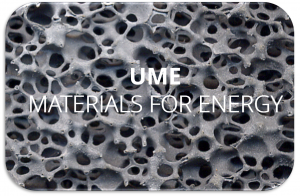LNEG-UME
TA70 – LNEG-UME
Location
Estrada do Paço do Lumiar, 22
1649-038 Lisboa, Portugal

Description
LNEG/UME carries out research, testing and technological development relevant for different technologies, namely advanced materials, energy storage, photovoltaics (PV), solar thermal, hydrogen, wind, offshore wind and ocean energy. LNEG/UME’s infrastructure comprises four main facilities:
- Laboratory of Materials and Coatings (LMR), accredited in accordance with EN ISO 17025 standard
- Hydrogen (H2LAB)
- Batteries and recycling (BatLAB)
- Material’s characterisation (MACLAB)
Services offered by the infrastructure:
LMR:
- Detection, study and prevention of corrosion
- Specification and validation of anticorrosive protection systems/coatings
- Classification and determination of the corrosivity of natural and artificial environments
- Evaluation of the durability of materials
- Development of conversion treatments and paint coatings
- Diagnosis and failure analysis of structures and equipment
H2LAB:
- Production of hydrogen by electrolysis, photocatalysis from waste waters and co-electrolysis from water and CO2
- Synthesis and characterisation of high performance materials for electrolysers and fuel cells (catalysts, membranes and electrodes)
- Monitoring, control and optimisation of green hydrogen production systems
BatLAB:
- Shredding and separation
- Hydrometallurgical processing (leaching, precipitation, solvent extraction)
MACLAB:
- Physical, chemical and mechanical characterisation of materials and coatings, including perovskites and thin film solar cells materials, ceramics for water splitting at high temperatures, corrosion of metallic alloys for high temperatures, and organic and metallic coatings for maritime structures.
These facilities receive around 30 to 40 technical contracts with industry (national and international) and around 5 international users per year to conduct research.
Support offered under this proposal:
The scientific and technical staff will provide all required assistance to external users, while LNEG’s Management and Organisation Department will take care of logistic support prior and after stays at the facilities, in accordance with customary practice.
Testing Capabilities
It supports corrosion detection and prevention, anticorrosive protection systems, durability evaluation of materials, and conversion treatments. It also supports hydrogen production and characterisation, battery performance and recycling, and materials and coatings analysis.
Technical Equipment
- Artificial aging systems for evaluating material durability and corrosion protection; outdoor exposure testing sites for assessing material durability in different corrosive environments
- Photocatalytic reactors, potentiostats/galvanostats, frequency response analysers, and gas chromatography for hydrogen research
- Electrochemical impedance spectroscopy (EIS), adiabatic calorimeter, potentiostats, galvanostats, chargers, loads, data loggers, small-scale lab shredder, sieving equipment, and lab reactors for battery performance evaluation and recycling
- SEM/EDS, XRD, µXRD, GIXRD, FTIR, GDOES, TG/TGA/DSC, thermal conductivity measurements
- Thermal electric analysis (seebeck coefficient, electrical resistivity) for detailed material characterisation
Additional information
Technology Readiness Level: 7 or above
Special considerations: N/A
Technology clusters: CSP/STE, Energy Storage, Hydrogen, Materials for Energy, Ocean Energy, Offshore Wind, PV
Website: http://www.lneg.pt
Availability: All year
Provision of tools to prepare data sets in a FAIR way: Yes
